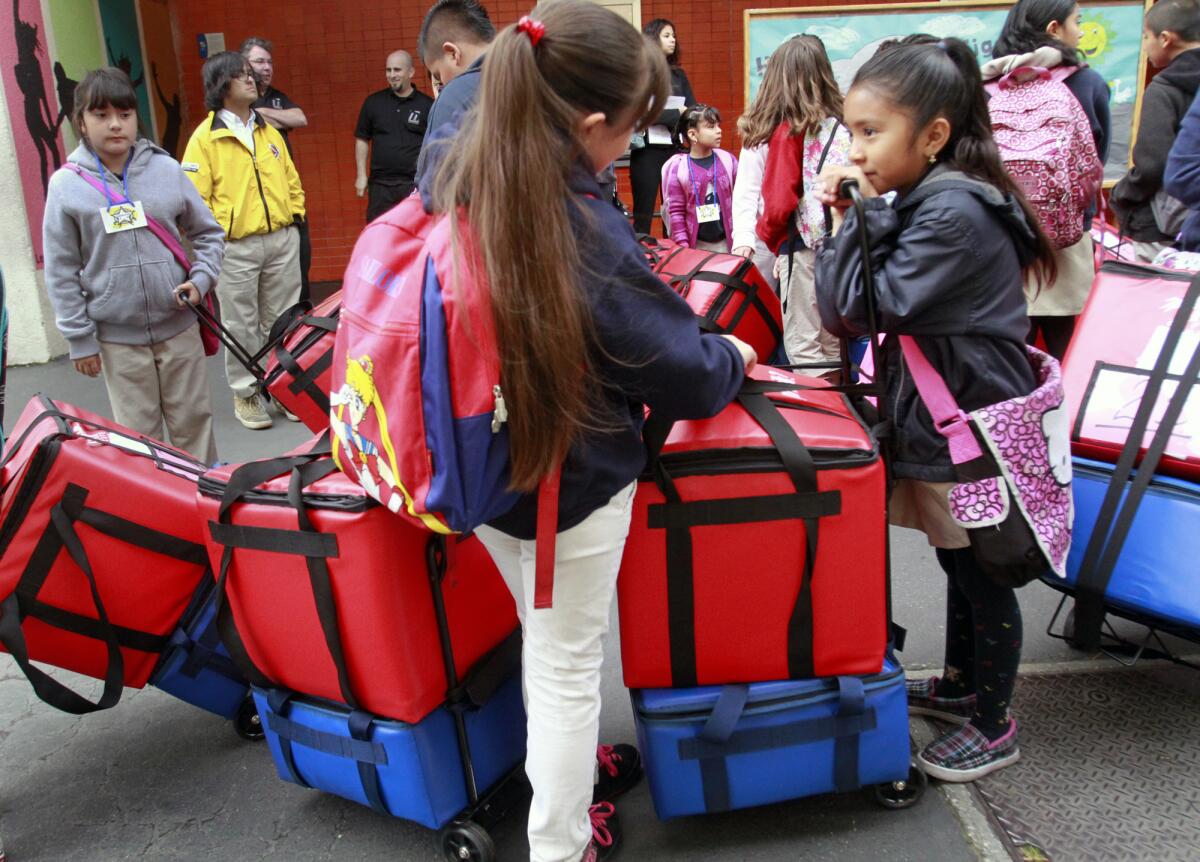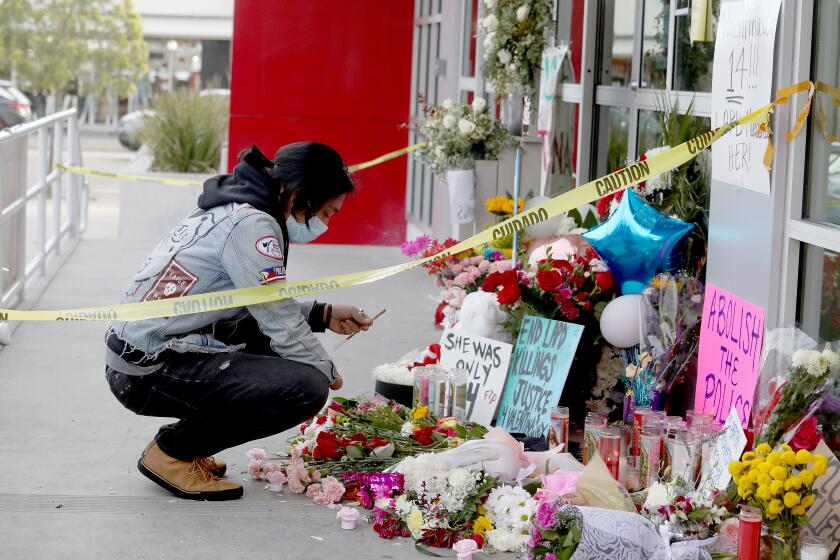L.A. Unified board will back classroom breakfast program

A majority of L.A. Unified School Board members said they will vote to continue a classroom breakfast program that feeds nearly 200,000 children but was in danger of being axed after sharp criticism by the teachers union.
The program’s fate was thrown into question last week when L.A. Supt. John Deasy said he would eliminate it without explicit board direction to retain it. He said United Teachers Los Angeles had complained that serving breakfast in the classroom, rather than before school in the cafeteria, took up too much instructional time and created messes.
News of board support for the program came as another district union, Service Employees International Union Local 99, planned to rally at Hooper Avenue Elementary in South Los Angeles on Tuesday morning to save the classroom breakfasts. Union spokeswoman Blanca Gallegos said more than 900 school cafeteria workers would lose their jobs if the classroom breakfast program was shelved.
But the program no longer appears imperiled. At least four of seven board members said they would back the program, including Monica Garcia, Bennett Kayser, Nury Martinez and Steve Zimmer. Board member Tamar Galatzan is still undecided, according to a spokeswoman. The other members, Richard Vladovic and Marguerite LaMotte, could not be reached for comment.
“I am thrilled,” Deasy said Monday of the support for the program, which is set for a board vote May 14. “This is very good news for students who live in circumstances of poverty and need to eat.”
Kayser said he was impressed by the program in his first visit to observe it Monday at Micheltorena Street Elementary in Silver Lake. He said the children told him that the day’s fare – blueberry muffins – was not as popular as burritos, waffles and pancakes. But thanks to several parent volunteers, he said, the breakfast items were rolled in a cart to the classroom, unpacked, served, eaten and cleaned up all in just 10 minutes.
During the breakfast time, he said, students who finished early read books. “I’m not sure it was the highest-quality lesson, but certainly they weren’t fooling around,” he said. “Given the alternative of kids not eating, it’s a really great program.”
Martinez said the program has helped improve academic performance, student attention spans, attendance and health. “We know that well-nourished children make better students,” she said in a statement, adding that she would support any initiative that ensures that all youths “begin each and every day ready to learn.”
Zimmer also said Monday he would back the program and questioned why it even became an issue.
“I don’t see why we can’t solve this,” he said, referring to concerns by the teachers union.
Earlier this month, the union posted a video and online poll findings that more than half of 729 respondents said the classroom breakfast program had increased pests, created messes and consumed an average of 30 minutes of instructional time. That lost time, the union said in a flier to parents, amounted to eight school days a year.
But union president Warren Fletcher said his members were willing to sit down and discuss alternatives. “Mend it, don’t end it,” he said last week.
Zimmer and Kayser said they have not yet come up with proposed solutions, but Garcia has pointed to Malabar Elementary, where children eat breakfast together outside the classroom, as a possible option.
The breakfast program has been expanded in the last year from a handful of schools to 280 under an initiative by the district, the nonprofit Los Angeles Fund for Public Education and other partners. The aim was to boost the number of children eating morning meals – which has been linked to better attendance, more student focus and fewer trips to the nurse’s office.
So far, the classroom program has increased participation from 29% to 89% and this year brought in $6.1 million in federal school breakfast reimbursements, according to David Binkle, the district’s food services director. That figure is projected to increase to $20 million if the program is expanded to more than 680 schools as has been planned.
The classroom breakfast program was the most prominent item set to be axed without explicit board approval listed in an April 12 memo from Deasy. Other items included more school police for new campuses opened in the last two years, administrators, small schools that are underenrolled and $1.4 million for KLCS public television.
Deasy said he expected the board to back funding for other items, such as more school police. He said last week he would give “maximum responsibility” to the board to decide between those programs and the teachers union’s demands for more jobs and higher pay.
ALSO:
New L.A. Program Offers Breakfast in the Classroom
Expanding Young Students’ Role in Nutrition
L.A. Schools Healthful Lunch Menu Panned by Students
Twitter: @TeresaWatanabe | teresa.watanabe@latimes.com
More to Read
Start your day right
Sign up for Essential California for news, features and recommendations from the L.A. Times and beyond in your inbox six days a week.
You may occasionally receive promotional content from the Los Angeles Times.







